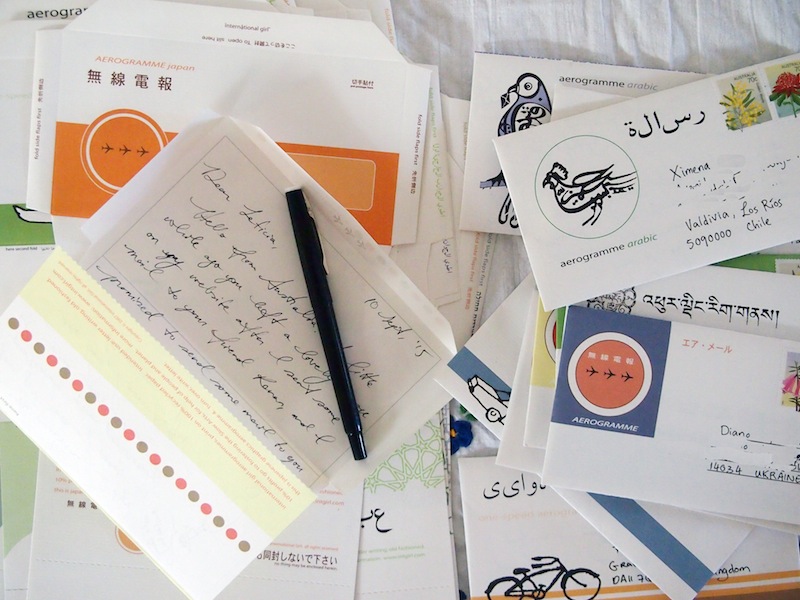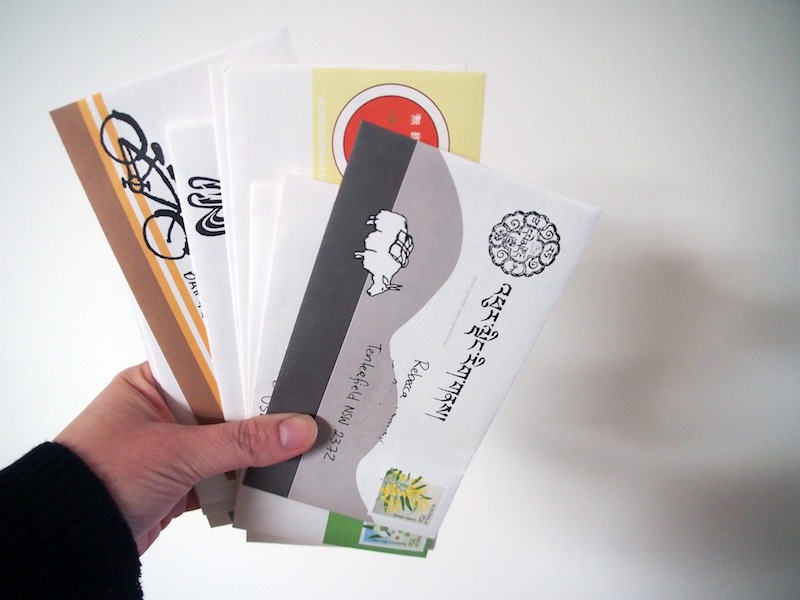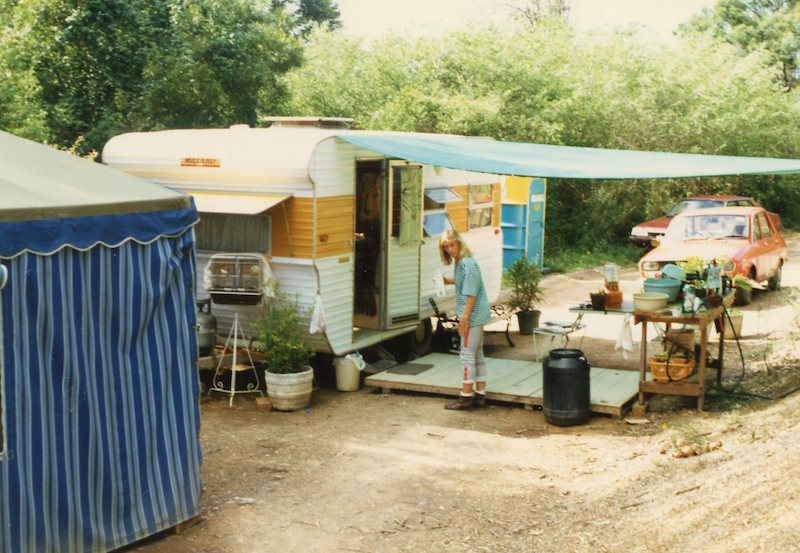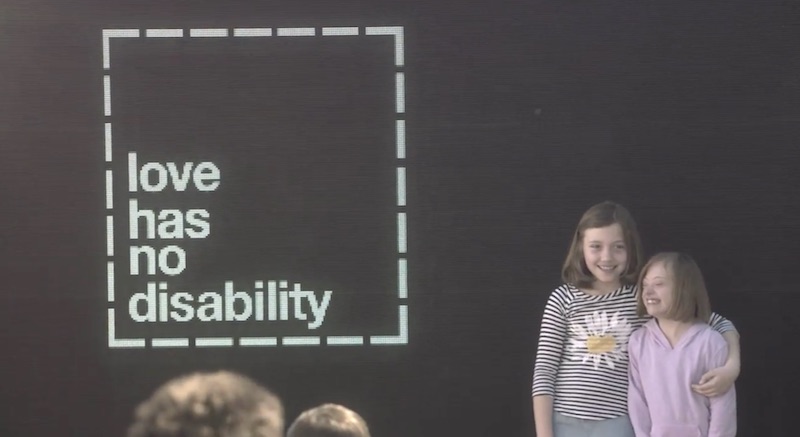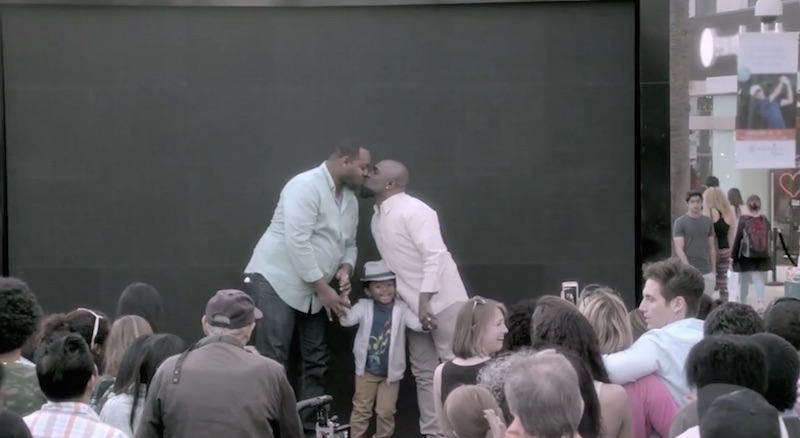
JOURNAL
documenting
&
discovering joyful things
Stop just a minute
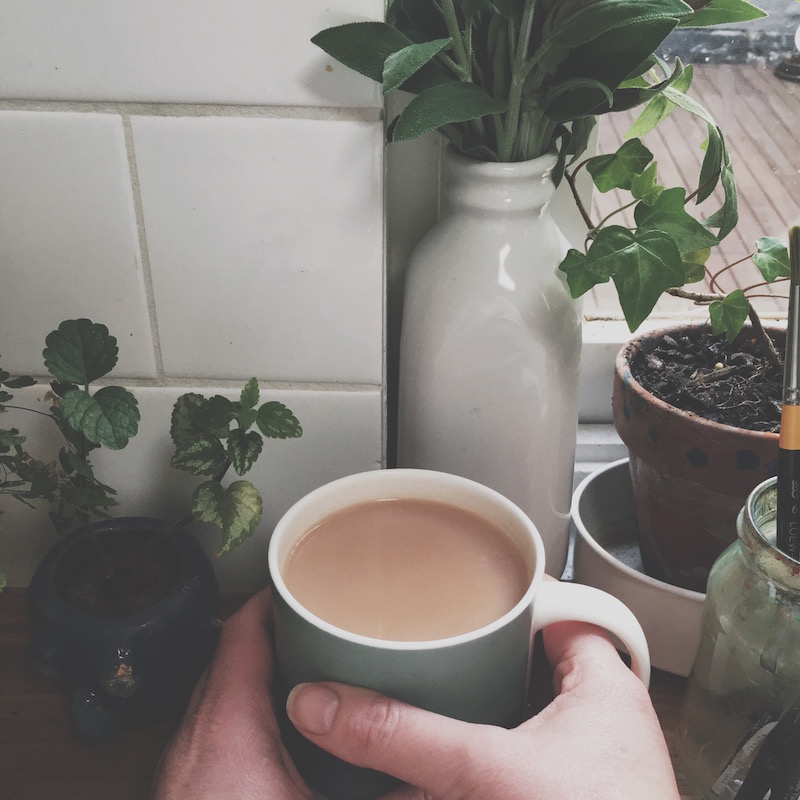 This is all happening too fast.
This is all happening too fast.
It's not just the growing, it's the developing, the knowing, the maturing. "Stop growing up, start growing down," I tell them, and they roar with laughter. "Again?" requests Ralph, "Will you tell me to grow down?" ("Grow down," I obligingly order him. "NO!" he yells in evident delight).
Ralph started toilet-training on the weekend. I have always said this wasn't the kind of parenting blog that would share the details of my children's challenges, and I'm not about to change that now, so I'll spare you the details of that particular story (although you can ask me in private if you want to: there is much hilarity for people who can appreciate or relate to that sort of thing). But I didn't need Ralph to keep reminding me "I'm a big boy now!" to reinforce the significance of this time. Nappies = babies. Undies = big kids. Once my last baby is out of nappies, that tender, sweet, all-encompassing stage in my life is gone forever.
Oh, it's such a boring cliché, I am bored even as I write it and you are probably yawning, if you're still here at all. Alert the media: Mother Mourns Passing of Time.
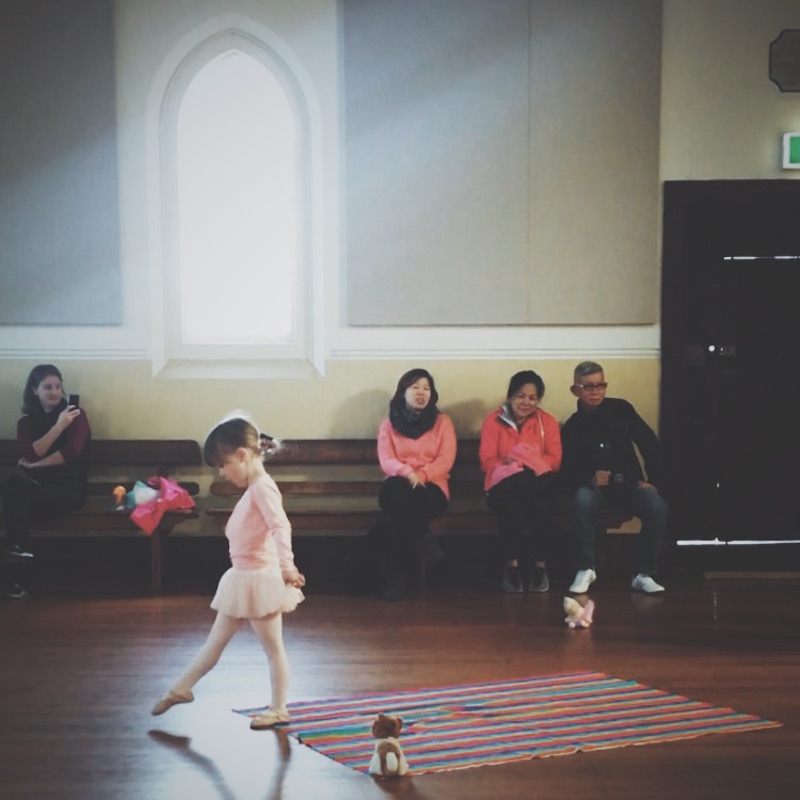
Each little milestone, announced with such pride.
Scout: "Mummy, watch me. I can skip!"
Ralph: "Mummy look at me standing on one leg!"
Scout: "Is this how I write my name Mummy? I am very good at this."
Ralph: "Don't help. I can brush my own teeth."
And Scout (beaming with pride): "Maman, comment ça va?" ("Je vais bien, merci," I reply.) Scout (nodding her head approvingly, like a wise old lady): "Ah, bon."
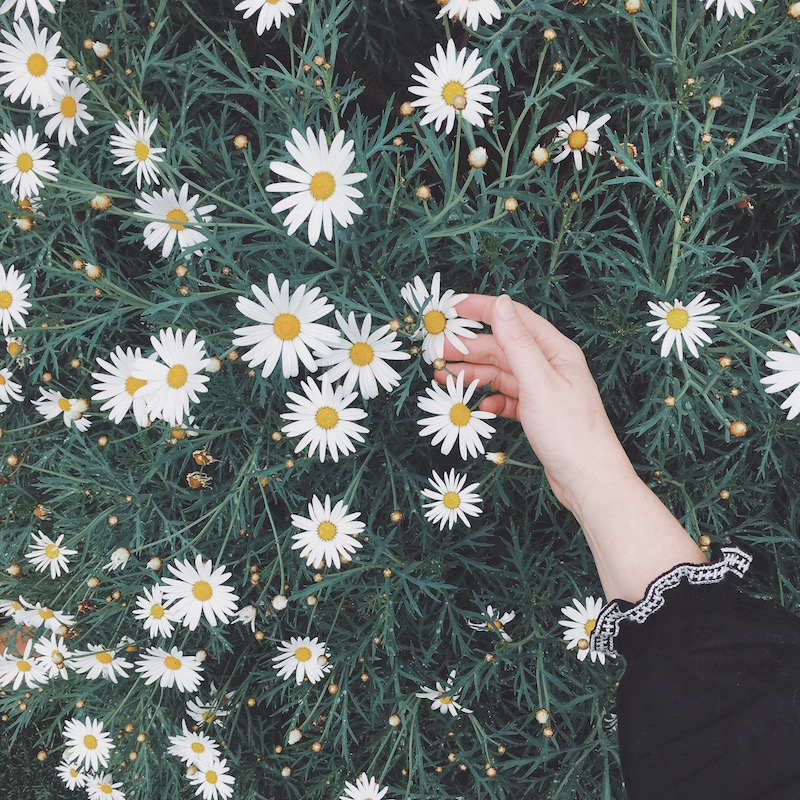
Here is another cliché that is true: every age is the most wonderful and the best.
Whether they are cloud-gazing or deciphering words, practising new skills or teaching one another, seeing the world through their eyes is a great privilege, a front row seat to the theatre of life as it unfolds, all over again. Just like it was for me when I was their age, I imagine, but I was too busy doing the growing to pay attention to the sheer wonder of it all.
Last night I lay them on the carpet side by side after their bath, to get them dressed. They turned to face each other, giggling and playing, each one using the other one's hand as a pillow, feigning sleep, cuddling, kissing.
Suddenly it all hit me.
I stopped trying (and failing) to get them dressed, and started paying attention, proper attention, to the moment. "Look at them!" I wanted to open a window and shout to the whole world. Why couldn't everyone else see what I was seeing, the absolute miracle of these two human beings?
(A mother's ego that everyone must naturally find her children as fascinating as she does.) (Nobody does.) (Plebs).
Time stopped and it didn't matter any more how big they were getting or how small they still were, the new skills they had mastered or their adorable mistakes, it was just them. These two amazing individuals, and their love for each other. Such a love that I have never seen between two people for each other. Ever.
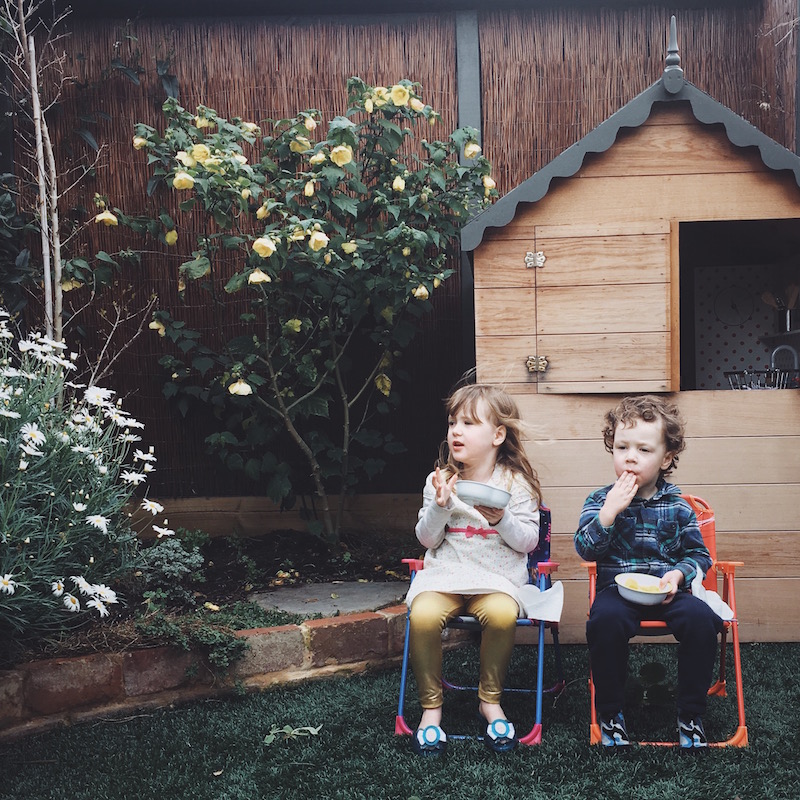
Later, we three snuggled together and read stories. I read to them from Amazing Babes, a book that celebrates women of courage, of conviction, of creativity, and of compassion. We had conversations about women's rights and war crimes, about equal opportunities, about the law. It wasn't easy to explain these things in ways that a four-year-old and a two-year-old could understand, but I loved them for trying. Those little furrowed brows: concentrating, questioning.
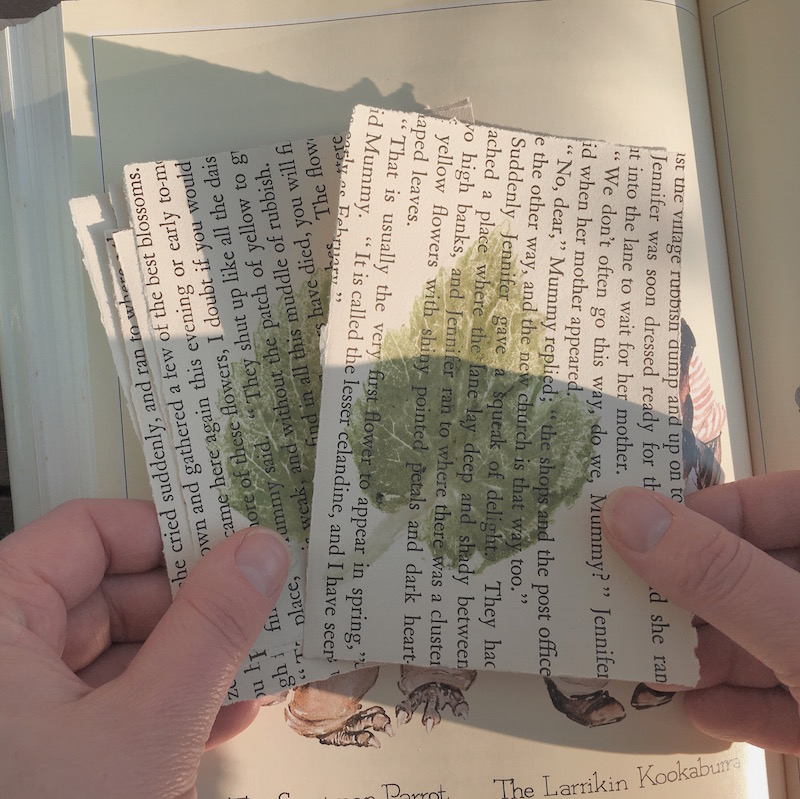
Small fingers tracing over the dark skin of Mum Shirl. All the questions! About prisons and prisoners, about Indigenous people in prison, about the whole history of colonialisation. Those big grey eyes looking up at me, round as little stars. "What did the people from England do to them that was naughty?" I took a deep breath. "Well, they took away their homes, and they hurt them. They tried to be the bosses of them, and they were cruel to them."
Those eyes again. "Why?" Oh sure, let's just solve the entire problem of racism during a cosy bedtime-story chat. "Because they were different," I said at last. "They looked different, and believed different things, and spoke a different language, and lived a different way. Because they were different, the people from England though they were better than them."
Scout stroked the dark-skinned face of Mum Shirl again. "Shohana has dark skin like this," she said, thoughtfully, "and Bella," naming her best friend. I pressed the advantage. "Do you think any of our friends are better than others, because of the way they look or what they believe?" She shook her head solemnly. I could tell she still didn't understand: racism wasn't just wrong, it was genuinely incomprehensible.
"Vaishali looks like that," Ralph piped up all of a sudden. "Yeah and Rajetha!" Scout returned. "It is a little bit like Yulia," Ralph continued (he pronounced it "Loolia," be still my heart). They started naming everyone they knew and loved with skin that was any colour other than their own: friends and teachers from India, Iran, Pakistan, Singapore, Indonesia, China, Peru.
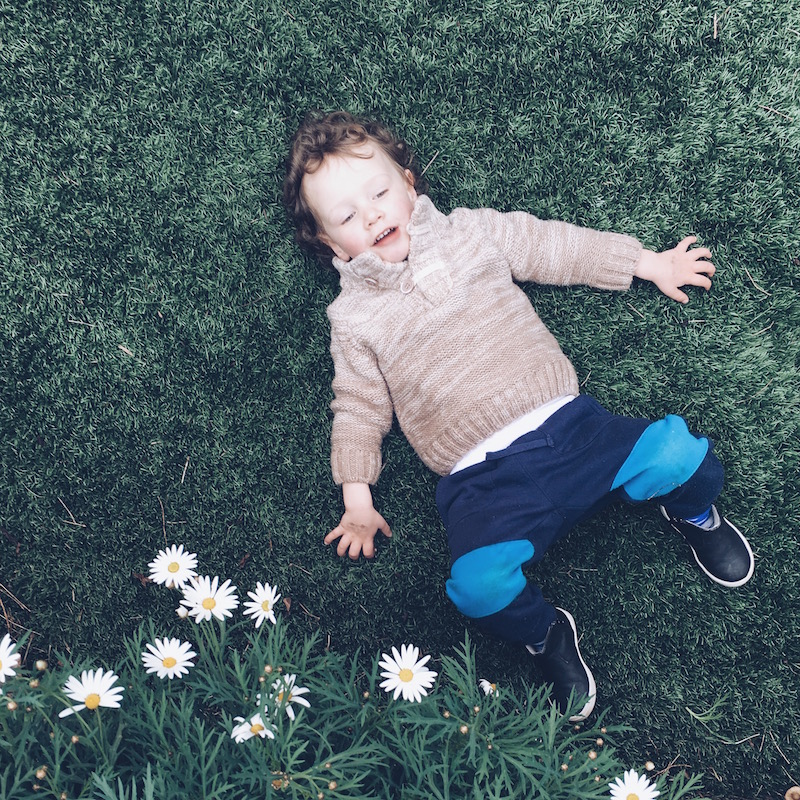
Last night I talked politics and race and feminism and creative expression with my two kind and compassionate children. Yes, they are growing up, and it is an honour to witness the growing.
Permit me a proud-Mama moment, cliché or not.
Kindness & chocolate
 I watched this wonderful interview with writer, poet and holocaust survivor Francine Christophe yesterday, and it moved me to tears. What a beautiful, touching story about the power of kindness.
I watched this wonderful interview with writer, poet and holocaust survivor Francine Christophe yesterday, and it moved me to tears. What a beautiful, touching story about the power of kindness.
It's part of a new film called "Human" by Yann Arthus-Bertrand that looks to be extraordinary. You can watch the trailer and find out more here.
Image credit: Padurariu Alexandru, licensed for unrestricted use under Creative Commons
On mail and mindfulness
Earlier this week I convinced a woman I had only met an hour before to sit on the front porch of my house with a big pile of beautifully-designed aerogrammes on her lap, and let me take her photograph.
I stood out on the footpath and zoomed in past the rusting fence, the spring-rampant flowers and weeds (and the three-day-old junk mail trying to escape my letterbox), and focussed on the pen in her hands, her head bent over the paper, the splash of colour on the aerogrammes themselves. She was super gracious, and super patient. I climbed up onto the stone foundations of our fence to grab a taller angle, and started shooting again. Click-click, click-click ("Thanks so much for your patience, just a couple more,") click-click.
When I was done, I offered to show the woman the photographs I had taken, to make sure she was comfortable with them. I hit "preview" on the camera, and it hit me back with a somewhat heartbreaking response: "no memory card."
Shamefacedly, I had to admit to this near-stranger that I'd just wasted her time and in fact had NO photographs at all. I just didn't have it in me to ask her to wait around while I went and got the memory card and then pose her and start all again. Instead, I pulled my iPhone out of my pocket and snapped one photograph - just one - so at least I could prove that this mail hero (or at least her hands and lap) really was here.
All in all it was a bit of a lesson on being mindful, which I absolutely wasn't, which is ironic given the nature of my conversation with the woman sitting on my front porch.
Her name is Jaki and she is one half of the two-sister team behind a lovely little business called International Girl (so-named because they're all about celebrating international community, and also because Jaki lives in Singapore while her sister Kirsty lives in Australia), bringing aerogrammes to the people. I first came across International Girl while doing some research for my book on snail-mail, and I kind of fell in love with their products AND their philosophy.
First of all, they're trying to revive the almost-lost art of the aerogramme. Aerogrammes are letters that fold into envelopes, creating a very lightweight letter to send, saving you money on postage. Back in the day, when people sent so many more letters so much more often, this was an important saving.
(Fun fact: aerogrammes, also known as blueys, are still provided free of charge to every member of the British Armed Forces, to help them stay in touch with their loved ones).
Jaki and Kirsty were lucky enough to grow up in a family that travelled a lot and, even when the girls were children, they spent months or even years at a time overseas. They would use aerogrammes to write to their grandparents back home in Australia, and to stay in touch with all their friends. Fast forward a decade or two and Jaki, then living in the United States and still wanting to stay in touch with her family by mail, discovered that aerogrammes were being phased out in the States. Cue adorable business idea that incorporates so many things that matter to me:
- Bringing back aerogrammes, to make it easy and affordable (and nowadays delightfully nostalgic) for people to stay in touch via hand-written letters
- Supporting artists by using their work to create a lovely, visual and graphic element to the aerogrammes, which come in sets of five different designs
- Further supporting other artists by donating a portion of the proceeds towards their work
- Celebrating diversity and international friendships, by featuring two languages on each aerogramme ("This was a fun project in itself because it involved finding and making friends who could do the translations for us," Jaki told me)
- Printing the aerogrammes on 100 percent recycled paper that is completely biodegradable and recyclable. This also gives it a lovely feeling of quality and substance in the hands, a step up from the flimsy, blue aerogrammes that I remember from my own childhood
International Girl aerogrammes celebrate the "slow culture" movement. I asked Jaki to tell me what this meant to her, and she said she could best equate it with what we might now call "mindfulness." It's about taking the time to really think about what we are doing, to mean it, to put our hearts into it. Writing a letter instead of banging out a text. Cooking a meal from scratch. Turning off the TV at meal times. (Turning away from social media and my phone in general when I'm with my children.)
You know what I'm talking about! We could probably all do with being a bit more deliberate and mindful, and giving more of our time to the things that matter.
All this, from a piece of paper that folds up into an envelope.
As Jaki picked up her bag to leave my front porch after the failed photo shoot, I was ridiculously awkward, because I really liked her. "Can I give you a hug?" I asked. "Because I feel like we are--"
"Kindred spirits," she finished along with me.
Getting neighbourly



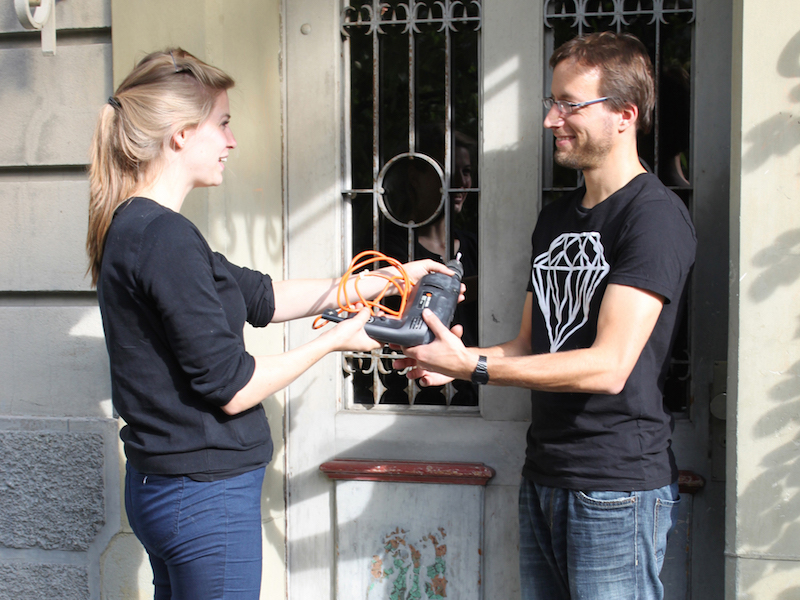 A group in Switzerland has come up with a simple and rather lovely way to use your humble letterbox to build community.
A group in Switzerland has come up with a simple and rather lovely way to use your humble letterbox to build community.
But it’s not through the writing and sending of letters, it’s about sharing, and involves (gulp!) actual face-to-face contact.
You know the old saying about popping into someone’s place to borrow a cup of milk? When I was growing up, we really did that. We knew all the neighbours in our little suburban cul de sac, and they knew us. When someone new moved into the street, we would bake them a cake or pick them some lemons and we’d knock on the door with our gift, to say welcome. And if someone in the street needed to borrow something and someone else in the street had it, no problem!
Relying on that kind of old-fashioned community spirit, a group called Pumpipumpe has designed a series of stickers depicting household items that we don’t necessarily use every day: things like lawnmowers and blenders and fondue sets.
The simple idea is that if you have one of these items and might be willing to lend them to a neighbour, you put a sticker on your letterbox.
They say, “That is how you can stand up for a reasonable, sustainable way to use consumer goods in your own neighbourhood, build a local network, get to know your neighbours better and buy less all together!”
The project is deliberately low-tech. They could have built an app, or a website, designed for sharing. But Pumpipumpe is about bringing back neighbourhood: walking around the streets where you live, and still having to physically knock on the door of your neighbour, say hello, and say “yes please I’d like to borrow that bike pump.”
Likewise, they say, they leave it up to the community how they will manage or reimburse each share.
“Do you want a deposit, in order be sure to get your jigsaw back? Maybe you and your neighbour will in the end share your expenses for a common newspaper subscription? Or will you offer your neighbour a piece of the delicious cake you made with his cake tin? Please do individually discuss the ideal conditions with the people you share your things with. Pumpipumpe promotes the sharing (not renting for money) of personal belongings, so please use these generous offers of your local neighbours respectfully. Good sharing to everyone!!”
The scheme started in Switzerland and that’s where it's strongest, but is now spreading across Europe, and at last count was making use of 7290 letterboxes for the purpose of sharing and community. The Pumpipumpe people have created an online map that shows where items might be available to borrow, to save you having to roam the streets for days, searching for a sewing machine.
I’d love to see this in Australia! Wouldn’t you? We’d just need a small group of us to make it work. Like say maybe 10 friends who all live in the same city start it off, putting out their stickers and letting each other know, and then they each tell the other people they know, and hopefully it spreads from there.
Stickers are available to buy online at pumpipumpe.ch.
Cute, super-daggy video explaining it all here:
Images are all official Pumpipumpe media images, owned by Meteor Collectif.
#postcardsforposties + free adult colouring


 You guys. What a fantastic response you gave to the "postcards for posties" idea that I shared last week. Thank you! I've been inundated with emails and messages saying "I'm in." So let's do this!
You guys. What a fantastic response you gave to the "postcards for posties" idea that I shared last week. Thank you! I've been inundated with emails and messages saying "I'm in." So let's do this!
Will you join me in saying thank you to the posties of the world? I was thinking we could start a bit of a hashtag movement - #postcardsforposties - and pop some handmade postcards in the mail for as many posties as possible. They are the women and men who deliver our mail: rain, hail, snow or 40+-degree shine (and the thousands of men and women who sort and manage our mail to get it there). They deserve a bit of recognition and gratitude, don't you think?
Don't worry if you never visit the post office, or if you don't know the name of your postie. This movement is simply about spreading the gratitude. You can sign your name to the postcards or keep them completely anonymous. It's up to you. Here are some ideas...
* Have you recently sent someone a heavy parcel? Write a postcard to "The Postie at [your friend's] post office" and thank them for carrying your heavy mail
* Is the weather really horrible this week? Pouring rain? Heatwave? Massive winds? Write a couple of anonymous postcards addressed "To the Postie" and drop them in any mailboxes you pass on your way to work, thanking the posties for braving the elements to deliver your mail
* Did a postal staff-member go above and beyond to help you out? Write him or her a postcard and mail it to that post office (or slide it under the door after hours). If you don't know their name, just describe the person and/or the scenario in your message
I'm sure you have a lot more - and a lot better - ideas than me. Let's start thanking our posties!
Free postcard printables
What with with the massive interest in adult colouring at the moment, I thought I'd create some printable colouring-in designs for you to make your #postcardsforposties. (If you want to. Of course, feel free to make your own instead. Go to town!). There are four designs to choose from:
>> "Thank you" pigeon post >> "I hope it doesn't rain on you today" >> "You're bloomin' marvellous" >> "May all the dogs you meet be friendly"
Step 1: Click on the design that you want to download, then hit print (they make a standard 4 x 6" postcard, allowing for a bit of a white border, which keeps postage costs to a minimum). If you have a printer that can take cardstock, print onto that. If not, just print onto normal paper, then paste your picture onto some cardboard to make it stronger to survive the post.
Step 2: Colour, paint, collage or do whatever you like to the picture. (Be aware that water-soluble paints and inks etc may run if you end up posting your postcard on a rainy day - that said, I always use water-soluble gouache or watercolours, and so far no problems)
Step 3: Write your message on the back. If you are actually going to post your postcard (rather than just drop it into a letterbox), lay it out roughly the same way as a normal postcard. In other words, lay it it horizontally then write your message on the left and put the address and stamp on the right. (Here's how I did this for Jenny's postcard, if you're not sure)
Step 4: Post or drop off your postcard! Now do another. Let's get thanking the posties of the world!
ps. If you do this, don't forget to let me know, and use the hashtag #postcardsforposties if you are sharing on social media, so we can try to build up a bit of momentum. Imagine if people all over the world started spreading gratitude to their hardworking posties! We could be proud of that.
Thoughts on living small
This is not a story I think I’ve told on this blog before but, when I was a teenager, my family moved to a country property in the foothills of the mountains and, while my father built our house, we lived in a caravan. But mostly we lived outside. We even cooked and showered outside (until winter).
These photos are what my teenaged life looked like. The bottom photo is of our kitchen! We had no electricity or running water and at first we had no telephone (until a neighbour strung up a probably-highly-illegal phone cable for us from tree to tree along our kilometre-long, winding driveway).
My father was a social worker, not a builder, so this all lasted quite a long time. Many years, in fact.
There are so many stories I could tell you about this period of my life. Good ones and bad ones, a lot of funny ones. You can’t suddenly change your lifestyle without it changing you, possibly more-so because my brother and I were in the midst of our formative years.
From those years in the caravan, I learned how to slow down and pare back. You can't accumulate a lot of stuff in a caravan, or it will quickly smother you. And so you learn that you don't actually need a lot of stuff. Not at all. I learned to save, to conserve, and to value... everything. Every last resource was hard-won and frequently scarce, and therefore greatly appreciated.
A simple life. Days spent clearing our land for house and garden and horse, by hand. Picking up rocks, cleaning up giant piles of old glass bottles, half-buried. Digging out and gently burning off insidious lantana. Dad, throwing all his weight into the hand-held post-digger, trying to break a ground hardened by a hundred summers, but the ground almost breaks him.
Hardwood floorboards from a demolished 100-year-old farmhouse, used to build a gravity-fed tank stand. Hidden dry-rot. The tank-stand buckling under the weight of the water, and crashing down the side of the mountain.
Everything cooked on a gas burner or a hand-made, wood-fired barbecue. Everything. If you ever need to make toast on a frying pan, I can show you how.
Night-times spent gathered as a family around a single candle and a battery-powered radio, listening to old "talkies" (my favourite was an Australian comedy from the 1930s, called "Yes, What?").
Returning home one evening to find a baby sugar-glider, smaller than the palm of my hand, hiding on my brother's bunk bed.
In recent years I’ve read a lot of blogs about people undertaking tree-changes like ours. Simple living, wholistic living, tiny houses, that sort of thing. It’s funny the mixed emotions I feel whenever I read these stories. I’m not going to lie: sometimes, I feel a bit smug.
I think to myself, these people have NO IDEA how it really is when you seriously go off the grid. This isn't about making your own marmalade and spreading it on your homemade bread (I love doing those things, by the way).
It's about making a washing machine out of an old broom handle and a colander and using it for hours it to POUND your clothes clean, every weekend, until your arms and shoulders burn (that was mostly Mum, not me, although I helped. Poor Mum). Wearing headbands throughout most of your final years of high school, because you leaned too close to the candle while studying at night, and burned your hair. Showering from a canvas bag under a tree, in freezing wind. Applying the roll-on deodorant one morning before school and discovering that your mother had snuck around in the night and replaced all the actual deodorants with white vinegar. Spiders and beetles in your kitchen and bedclothes. Frogs in your drop-toilet.
We didn’t do these things by halves, my family.
But then alongside the smug is a hefty dose of guilt. Guilt because the way I live now feels so commercial and wasteful compared to the way I grew up. I confess: I love it when I can flip a switch and a light comes on. I like having the heater on in winter and I LOVE having the air conditioning on in summer. I like watching TV. I like doing the washing up with the tap running - it’s so much more hygienic! I really like to stand under a long, hot shower.
Please don't hate me but when I find a six- (or more)-legged creature in my house, I don't catch it and release it gently into the wilds of Carlton North. I kill it before it bites or spreads diseases to my children. And then I feel guilty and beg a silent, fruitless forgiveness from its corpse.
I feel like a traitor to my family, and to my planet.
Sometimes I think I find it more difficult to be a responsible global citizen because of the extreme way we lived when I was young. I’m like the kid that grows up without sugar and then makes themselves sick at other children’s parties (actually I WAS that kid, too).
But that's just excuses. I want to lessen my footprint on this world, to leave it a better place for my children. I COMPLETELY understand why all those other people I keep reading about are doing these things, and I admire them.
I have to fight with my own deep-seated selfishness, the side of me that says “I’ve already done my bit, made so many sacrifices. I've been the fourth person to step into an inch-deep bath shared one at a time, cleanest person first (I rode horses. I was the grubbiest). I've bucketed water out of said four-person bath and used it to flush a toilet. I’ve EARNED that long, hot shower, that air conditioner.” I struggle to find a compromise because I spent years not feeling properly clean, and not feeling comfortable. I’m not saying that it was all bad, not at all: a lot of it was fun. But I’m just saying… I don’t want to go back.
I don’t want to go back and I don’t know how to meet half way, because half way feels like I'm not doing enough and, if I’m going to give these things up all over again, it feels like it should REALLY be worth it. But who am I, to bargain with the world like that?
No great ideas, yet.
A face that only a mother could love
 Lately I’ve been thinking about faces that only a mother could love. Or, more precisely, about the origins of that cruel and silly saying, and about how much YOUR mother most likely loves YOUR face*, no matter what your face happens to look like.
Lately I’ve been thinking about faces that only a mother could love. Or, more precisely, about the origins of that cruel and silly saying, and about how much YOUR mother most likely loves YOUR face*, no matter what your face happens to look like.
Your wrinkles? She is SO PROUD of the decades of life and love that you put in to creating those wrinkles. Pimples? Your mother thinks they are perfect. She can’t believe her little baby is so grown up! Oh, your snaggletooth, it just breaks her heart! It is JUST like the snaggletooth that used to peep out from below your grandfather’s wiry moustache, and it is a powerful reminder to her of family and blood and the inescapable links created by DNA.
I am incapable of seeing my children through a fashion editor’s eyes. Of imposing on them those bizarre, objective, unrealistic attributes that are supposed to combine to create “beautiful,” like long legs, wide eyes and full lips. I look at my baby's chubby little thighs and I don’t believe I’ve ever seen anything more delicious. Ralph wears a dopey, droopy-eyed expression when he’s tired that makes me want to envelop him in kisses. Scout has short little legs that will probably stop her from ever being long and lean, and I smile with pride every time I see them, because they are just like mine.
My legs, that I have hated for as long as I can remember being aware of legs.
I spent decades wishing my legs were longer and thinner and smoother and more tanned. Yet now I look at my daughter, who appears to have inherited EXACTLY my legs (DNA, baby!) and, on her, I think they are beautiful. Perfect.
This realisation is changing the way I look at everybody. First of all myself. How can I hate my legs, when I see them on my daughter? She certainly doesn’t hate her legs. (She doesn’t hate mine either!) As far as I can tell she doesn’t think about legs at all, in any capacity other than how good they are at running around, and twirling, and splashing in the bath. If someone was to offer to take Scout’s legs off her and replace them with a longer, leaner pair, I would want to scream at them, and thump them, and have them arrested. How could they infer that ANYTHING about her was less than exactly right, or dare to make her feel that way about herself? But if those legs are perfect on Scout, how can I hate them on myself? When Scout is my age, I will still think her legs are perfect, and want to tear apart anyone who would try to tell her she needed to change herself. Maybe, possibly, probably even, my mother feels the same way about MY legs, right now. Ain’t THAT something to think about!
It is also changing the way I think about other people. Not that I’ve ever been one to walk around judging people on their appearances. I have many faults but, thankfully, that isn’t one of them. But now, when I’m absently people-watching, I’ll play a game in my mind where I'll focus on a feature of someone, like their nose. And I'll imagine what that nose must mean to that person’s mother. How their mother must know that person's nose SO WELL in the interior of her mind, how deeply every contour of it is etched in her heart, and how she would change nothing about it. Not one cell.
And so nowadays I look at all the people around me in all their different shapes and sizes and colours and regular and irregular features and all the rest of them, and I think just how much their mothers must ADORE all of those faces and bodies. It’s actually a really fun and special thing to do. Instantly, the guy at the counter when you’re paying for petrol, the middle-aged woman crossing the road ahead of you, the bored-looking secretary at the doctor’s surgery… all of them, seen through the eyes of their mothers and now me, are perfect.
* I’m aware of course that not all families are the same and not all mothers and children have the same relationships that I enjoy with my own mother and with my own children. Not everyone has known the love of their mother and that is tragic and heartbreaking and, if that is you, I am so, so, sorry. Everyone deserves to be loved, unconditionally, from the very beginning. I hope you know deep love, now. Either way, I want you to know that if I ever look on your face, I will be looking at you and imagining mother-love and I will truly believe that you, too, are perfect.
Photo is by Milada Vigerova, licensed under Creative Commons
Love
love has no gender
love has no race
love has no disability
love has no age
love has no religion
love has no labels
This video from Love Has No Labels has been doing the rounds of social media lately. Have you seen it? Just from watching, I feel so GOOD about the world. Like there is hope for us. Have a great weekend! Try to hug somebody.
(ps. If you can't see the video embedded below, watch it here)
Mean it
 I want to share with you one of the best and most important lessons I've ever learned.
I want to share with you one of the best and most important lessons I've ever learned.
In my early 20s I used to babysit for a family who had four children under six. [Insert multiple exclamation points and utter parental exhaustion here. How did they survive!?!?]
The parents were (and are) dear friends of mine, and mentors. I’d known them since I was a rather lost and confused teenager, and our age-gap fell perfectly into that in-between state: they were not old enough to be my parents, but old enough to seem all-knowing while still fun and relevant.
As a teenager I looked up to them in every way and, in many respects, I still do.
One night, as they were preparing to go out and I was helping to tuck all the kids in and brush all the teeth and read all the bedtime stories, I witnessed their father breaking up some sort of disagreement between the children.
“I didn’t mean to do it!” cried one child, over some small crime I can’t remember.
“That's good,” their father said, “but you should mean not to do it.”
I don’t know about those children, but that was a lesson in intent that I have never forgotten.
It is one thing to be blameless on intention. To be going about your own life, and not deliberately causing harm. But to swap those two words around is a whole other level: to deliberately not cause harm is a conscious act in intentional kindness that is so much more powerful.
Last week, not far from my house, a young man was killed while cycling to work. And the person who caused his death did nothing more dastardly than open their parked-car door without looking. The cyclist was thrown into the path of an oncoming truck. Death was instant.
In my compassion for the family of that cyclist, I also feel devastated for the person in the parked car. That person is probably a good person. A kind person. Someone who loves their family, and hugs their Nanna, and sometimes buys lattes for their friends at work. All they wanted that morning was to get out of their car.
But they will carry the burden and consequences of the cyclist's death forever.
People all over the news this week are talking about penalties for opening car doors in cycling lanes. They want stronger legal consequences because otherwise how will the rest of us learn, and remember? I'm going to stop here because this is getting too heavy and too sad but the whole horrible incident reminded me of my friend's advice to his small children, all those years ago.
Dear friends, let's consciously do good. Every time.
Too often, we stop at intent. We like to say it's the thought that counts, but we let the lack of thought go without remark.
Mean to do it. Mean not to do it. But don't ignore it.
Folks, let's mean it!
Image credit: Joshua Earle Photography, licensed under Creative Commons
Practise kindness
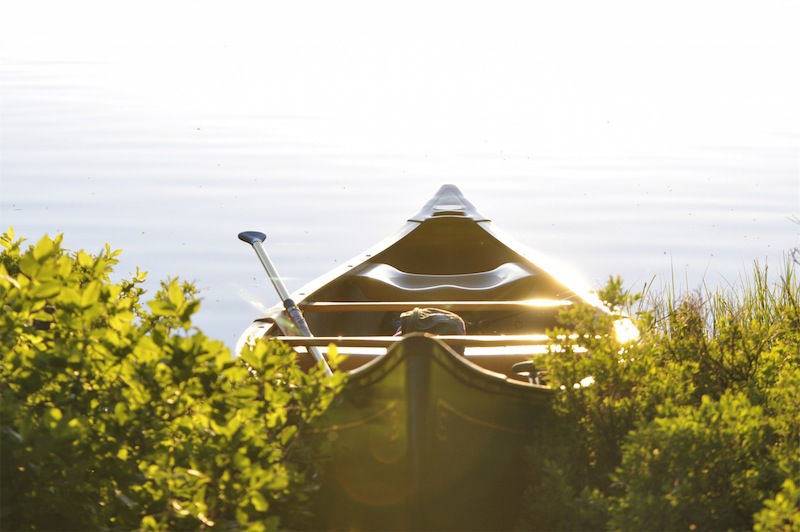 "When we feel love and kindness toward others, it not only makes others feel loved and cared for, but it helps us also to develop inner happiness and peace."
"When we feel love and kindness toward others, it not only makes others feel loved and cared for, but it helps us also to develop inner happiness and peace."
- Dalai Lama
Image credit: Michael Quinn (licensed under Creative Commons)




